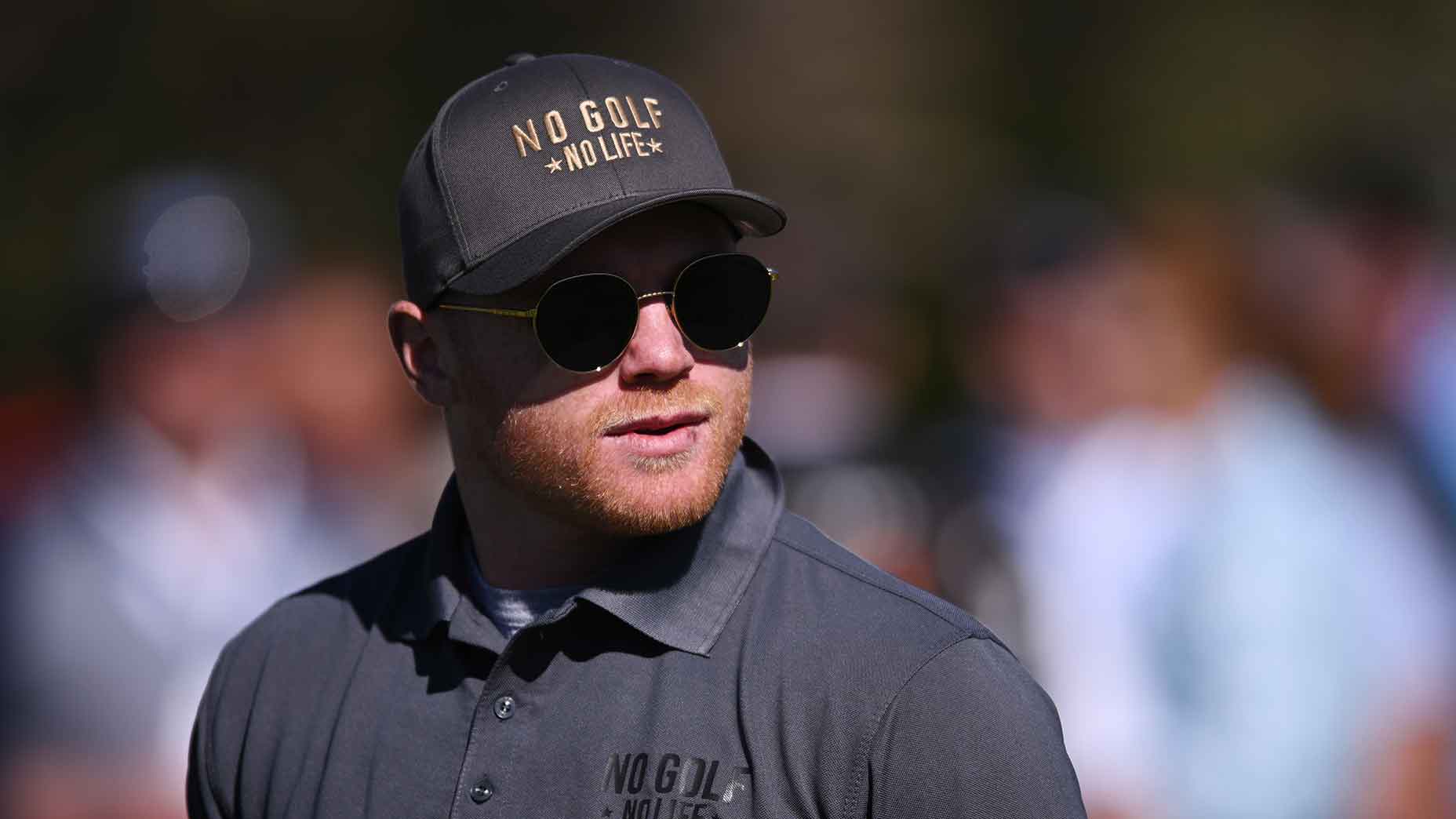On the day he appears on a Zoom screen in front of me, it’s clear Canelo Alvarez is already in what boxing folks call “the zone.” He’s settled into the rhythm of his latest spar — promoting his partnership with Michelob Ultra — rolling through a pre-Super Bowl media blitz with an effortless mix of jabs and hooks.
I’d never stepped into a ring — literal or metaphorical — with a professional boxer, but it doesn’t take long to tell there’s some overlap between Canelo’s interview and fighting styles. He’s deceptively sharp on defense, light on his feet, and patient enough to wait for his opportunity to strike.
Much as Canelo would be happy to run out the clock on our interview without offering too much of substance, and much as I sympathize with those who’ve been asked to answer the same question with the similar enthusiasm more than once, I’m not one to be distracted by a few body blows. I figure it’s time for a change-up.
“I’ve heard you’re a pretty huge golfer,” I interrupt him, hoping a big swing will break his momentum. “Well … how huge?”
His eyes light up. It worked.
“I love golf. It’s addicting,” he tells me, a smile spreading across his face. “I want to play every day. I want to practice every day. I want to put practice greens, a chipping area in my backyard. I love the game. It makes me happy.”
Soon, Canelo is going deep on his life as a golf sicko, an obsession that places a surprising amount of common ground between a world champion boxer and a softy golf writer who’s never so much as thrown a punch. Before long, it’s become clear that there are two sides to Canelo Alvarez: the one that throws hooks, and the one that battles them.
“Once I started, oh my god, I can’t stop playing. I just can’t,” he says. “I just had surgery on my hand, but before that I practiced every day, four hours a day. Then I played on the weekends.”
Like so many golfers, Alvarez only picked up the game at the start of the pandemic. Before that, he says, golf seemed too boring for him.
But he was a natural, and the hours of free time built into his training schedule proved prime for improvement. It didn’t take long for him to challenge par.
“I don’t have a best round of golf ever, but I do have a best day,” he says. “With my friends, we play 36, 54, sometimes 72 holes a day. On this day, I shot 76 on my first 18 holes and 75 on my second 18 holes.”
He starts to laugh.
“I won a lot of money.”
Hand surgery has kept him away from the course recently, which has been torture, but the break in his playing schedule hasn’t kept him entirely away from the game. Not long ago, Alvarez filmed a star-studded Super Bowl commercial for Michelob Ultra paying homage to “Caddyshack,” with Canelo spotted driving a custom golf cart through the fairways.
The advertisement will mark Alvarez’s official golf arrival when it airs shortly before kickoff Sunday, and it will be one of the more expensive arrivals ever; the ad slot ringing in at the splashy price of some $7 million. But in many ways, he represents the exact figure the beer company hopes the ad will reach — the young, uber-competitive demographic that has flooded into golf during the pandemic years.
Canelo knows this, just as he knows his journey with the sport is only beginning. He has dreams of playing some of the best golf the world has to offer, of visiting Augusta National for the Masters, of meeting Tiger Woods. Given his significant spheres of influence, these dreams are not unrealistic.
But those dreams aren’t why one of the world’s great fighters became a golfer. The answer to that question, it turns out, is the simplest golf lesson of them all.
“I love golf because it’s a hard, hard sport,” Alvarez says. “You can’t just put the ball in the hole. You need to be focused. You need to be trying hard. I like that.”
